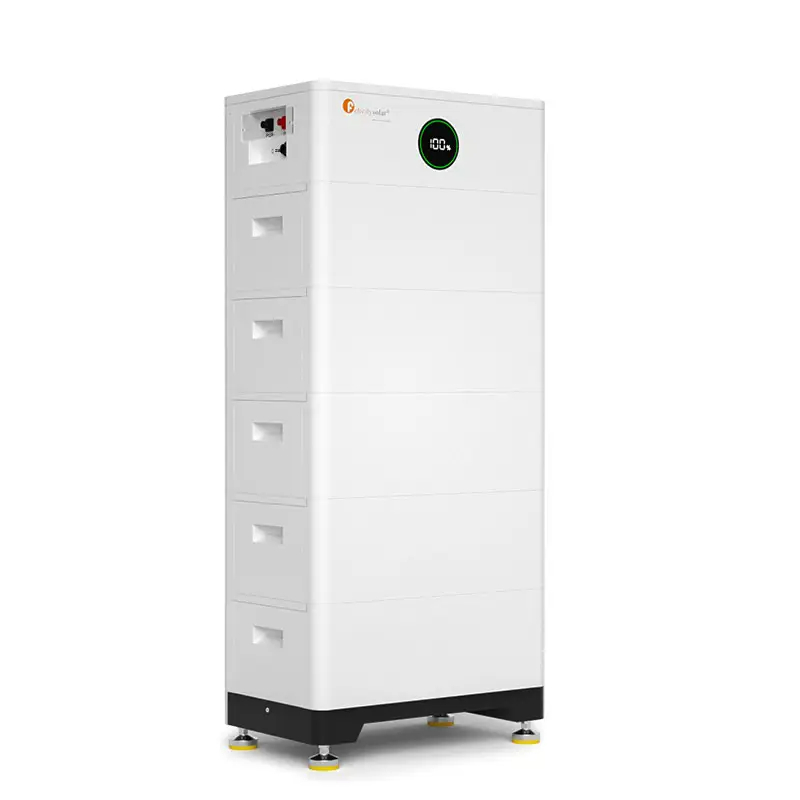-
 FAST SHIPPING
FAST SHIPPING
-
 COMPETITIVE PRICE
COMPETITIVE PRICE
-
 EXCELLENT AFTER-SERVICE
EXCELLENT AFTER-SERVICE
Web Menu
Product Search
Exit Menu
Product categories
News categories
RECENT POSTS
-
Maximizing Folding Solar Panel Efficiency: How Environmental Factors Affect Performance and Practical Tips for Optimal Use
Jul 07,2025 -
How Low Voltage Solar Storage Battery Systems Maximize Energy Self-Consumption and Improve Residential Solar Efficiency
Jul 03,2025 -
Understanding Power Output Options and Ports When Choosing a Folding Solar Panel System
Jun 23,2025 -
Grid-Tie Solar Inverters: A Comprehensive Guide to On-Grid Solar Power
Jun 20,2025 -
Key Challenges and Solutions for Using Photovoltaic Kits in Remote and Off-Grid Installations
Jun 12,2025
Understanding the Energy Density of High-Voltage Lithium Batteries: A Comparison to Traditional Systems
High-voltage lithium batteries have become a key player in the world of energy storage, especially in renewable energy systems like solar power. One of their standout features is their exceptional energy density, which plays a crucial role in their performance and efficiency. Energy density refers to the amount of energy a battery can store in a given volume or weight. The higher the energy density, the more energy the battery can store without taking up a lot of space, which is especially important for applications like solar energy storage, electric vehicles, and grid stabilization.
High-voltage lithium batteries generally offer superior energy density compared to traditional lead-acid or low-voltage lithium systems. A typical high-voltage lithium battery, such as those used in modern solar storage, can achieve energy densities ranging from 150 Wh/kg to 250 Wh/kg or even higher, depending on the specific chemistry and design. This is in stark contrast to traditional lead-acid batteries, which tend to have energy densities in the range of 30-50 Wh/kg. This difference means that high-voltage lithium batteries can store much more energy in a smaller, lighter package, making them ideal for both residential and commercial applications where space is at a premium. In fact, when you consider the total capacity of energy storage, high-voltage systems allow users to store more energy without needing to rely on bulky, space-consuming storage solutions.

One of the major reasons for this enhanced energy density is the chemical composition of lithium batteries. Unlike lead-acid batteries, which rely on lead plates and sulfuric acid to store energy, lithium batteries use lithium-based compounds that allow for a more efficient and compact energy storage system. The high voltage (often ranging from 400V to 800V in many solar storage systems) enables the battery to store more energy at a lower current, which reduces transmission losses and increases overall efficiency. This is particularly beneficial for solar energy systems, where storing excess power for use during periods of low sunlight (such as at night) is essential. With high-voltage batteries, homeowners and businesses can maximize the amount of solar power they store, reducing reliance on the grid and providing a more reliable backup power source during outages.
Another advantage of high-voltage lithium batteries is the lower current they generate for a given amount of power, which translates to lower losses during both charge and discharge cycles. This results in improved overall efficiency, helping to extend the battery’s lifespan. In fact, high-voltage lithium batteries tend to have longer operational lives compared to traditional low-voltage systems, largely due to this efficiency and the reduced stress on the system during operation. Additionally, the ability to charge and discharge at higher voltages means that these batteries can be used in a wider variety of applications, from grid-scale storage to electric vehicles, without sacrificing performance.
High-voltage lithium systems also offer the benefit of more sophisticated management systems. Because they store energy more efficiently, they require advanced Battery Management Systems (BMS) to ensure that voltage and current levels are properly controlled. These systems help protect the battery from overcharging, deep discharging, and thermal runaway, ensuring that the battery operates safely over its extended lifespan. As a result, while the initial cost of high-voltage lithium batteries might be higher than that of traditional systems, the long-term benefits — including better energy storage, efficiency, and lifespan — make them a cost-effective solution in the long run.
The typical energy density of high-voltage lithium batteries far outpaces that of traditional low-voltage systems and lead-acid batteries, offering significant advantages in terms of storage capacity, efficiency, and lifespan. The increased energy density allows for more compact and efficient storage solutions, reducing the need for large, cumbersome systems. With their ability to store more energy in less space, along with lower energy losses and longer operational lives, high-voltage lithium batteries are becoming an essential part of the transition to cleaner, more sustainable energy systems, whether for solar power, electric vehicles, or other applications. As technology continues to evolve, we can expect these batteries to become even more efficient, further solidifying their role as a key player in the future of energy storage.
←
Maximizing Solar Efficiency: How Flexible Balcony Solar Kits Capture Sunlight
→
Home Energy Revolution: DeYe Launches Hybrid Storage System with 10 kWh Expansion Capability
related products
 +39 3444606026/+31610999937
+39 3444606026/+31610999937 [email protected]
[email protected] De Werf 11, 2544 EH The Hague, The Nederland.
De Werf 11, 2544 EH The Hague, The Nederland. WhatsApp: +1 (917) 257 2995/
WhatsApp: +1 (917) 257 2995/
+31610999937
Copyright © 2023 Uni Z International B.V. VAT: NL864303440B01 All Rights Reserved



 0
0


 italiano
italiano Polskie
Polskie Nederlands
Nederlands Deutsch
Deutsch Français
Français Español
Español Український
Український











